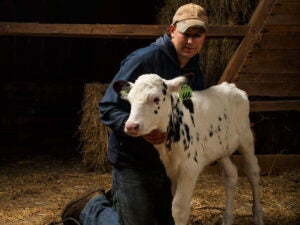KLIFOVET’s 20th Anniversary Seminar
KLIFOVET was overwhelmed by the participation of more than 115 animal health experts at its seminar last month.
The event took place on 29 June and 30 June, and was designed to celebrate the company’s 20th anniversary.
The visitors camw from 20 countries worldwide and the company felt it was an honour to see so much expertise following its invitation to the Eden Hotel Wolff near Munich’s Central Station to discuss the past and future challenges of the animal health industry.
Renowned experts from competent authorities such as the Health Products Regulatory Agency (HPRA) and the Friedrich Loeffler Institute (FLI); multinational animal health companies such as Boehringer Ingelheim, Elanco, ZENOAQ, and Zoetis; high-ranking consultancies such as Stonehaven Consulting and Stifel; international research institutes such as the International Livestock Institute (ILRI); and innovative start-ups such as VitamFero and Prevtec Microbia presented on different aspects of the animal health industry and market.
The introductory speech of KLIFOVET’s CEO Klaus Hellmann was published as a podcast by AnimalPharm. This touched some of the topics that were then discussed in more detail by the expert speakers and during two plenum discussions, which allowed the active participation of the audience. Each session and associated plenum discussion was headed by one expert of Klifovet’s board of management.
The concept of ‘One Health’ was repeatedly discussed, highlighting the close integration of human, animal, and environmental health, as well as the united efforts to increase the quality of life of all living beings on this planet in a sustainable way.
This topic overlaps with the crossover of human and animal health product pipelines. Products deriving from research for human medicines including novel therapies, including immuno-oncology products, monoclonal antibodies, stem cells, and biomarker technologies, which have started to enter the animal health market. Lacking established regulatory guidance, novel therapies are connected with uncertainty concerning the best and fastest way to the market; this hinders the fast access to market of such innovative technologies. However, it was confirmed by the competent authorities that the regulatory system is in the process of optimisation to improve the guidance to applicants to assure fast access of veterinarians and animals to such products.
Apart from lacking regulatory standards, many innovative start-ups and small-medium enterprises (SME) are faced with a difficult financial situation. While North America has a very friendly environment for financing of start-ups, venture capital and private equity is still rare and difficult to find for Europe-based animal health start-up companies. All participants agreed that increased investment into this market is necessary to ensure that innovative pipelines reach the animal patient quickly.
In Europe, several diseases are on the rise that currently cannot be prevented or treated sufficiently. This applies to African Swine Fever, Lumpy Skin Disease, Asian Influenza, Foot and Mouth Disease, and Peste de Petit Ruminants. Situations as experienced with Bluetongue and Schmallenberg virus should be avoided.
The replacement of antimicrobials will continue to challenge the animal health companies. While their use is currently reduced, this will influence the financial situation of a variety of players in the market. Other topics that need to be addressed and where medicinal solutions are currently lacking, will be based on the changing attitudes and perception of animal welfare topics, including reduction of pain in all species, pain-free castration and dehorning, stress-free transport, and handling of animals prior to slaughter. For pets, beyond reduction of pain there are other new target areas including behavioural problems, obesity, appetite stimulation, or oncology.
At the same time, the strategic investment of large companies is driven by bolt-on acquisitions to fill portfolio gaps in line with the market’s macro trends.
Time commitment did not allow all topics to be discussed in sufficient depth during the podium discussions. However, there was sufficient time for further exchange of views while having dinner and one or two beers at the Augustinerkeller in the impressive festival hall on Thursday evening.
On Friday evening, more than 140 people assembled at the German Museum for Hunting and Fishery in Munich’s inner city to celebrate the 20th anniversary of KLIFOVET, a contract development organisation and regulatory consultancy.
The event was a great success and everyone enjoyed the opportunities for networking, while food and drinks were offered by Grünwalder Burgunderhaus, who also assured perfect mixing of cocktails later in the evening. Musicians from the ensemble of the residence theatre under the leadership of Mr. Huber provided an excellent digest of music during the event.
KLIFOVET would like to thank everyone who participated in its anniversary event. You were a committed audience, inspiring discussion partners and questioners, as well as great guests.
The company also offers thanks for the generous donations to Tierärzte ohne Grenzen e.V. (Vétérinaires sans Frontières Germany to support their valuable work.


